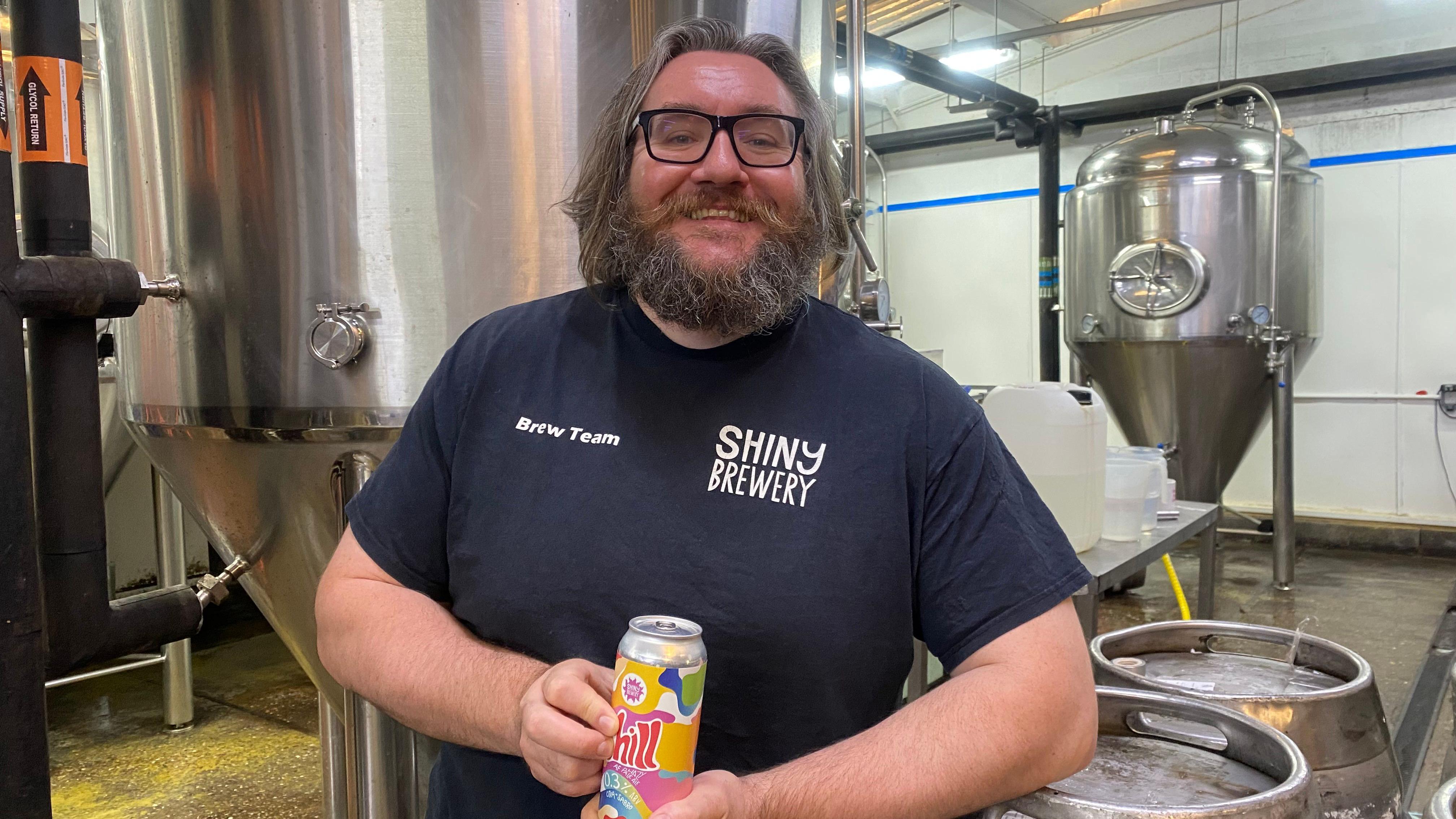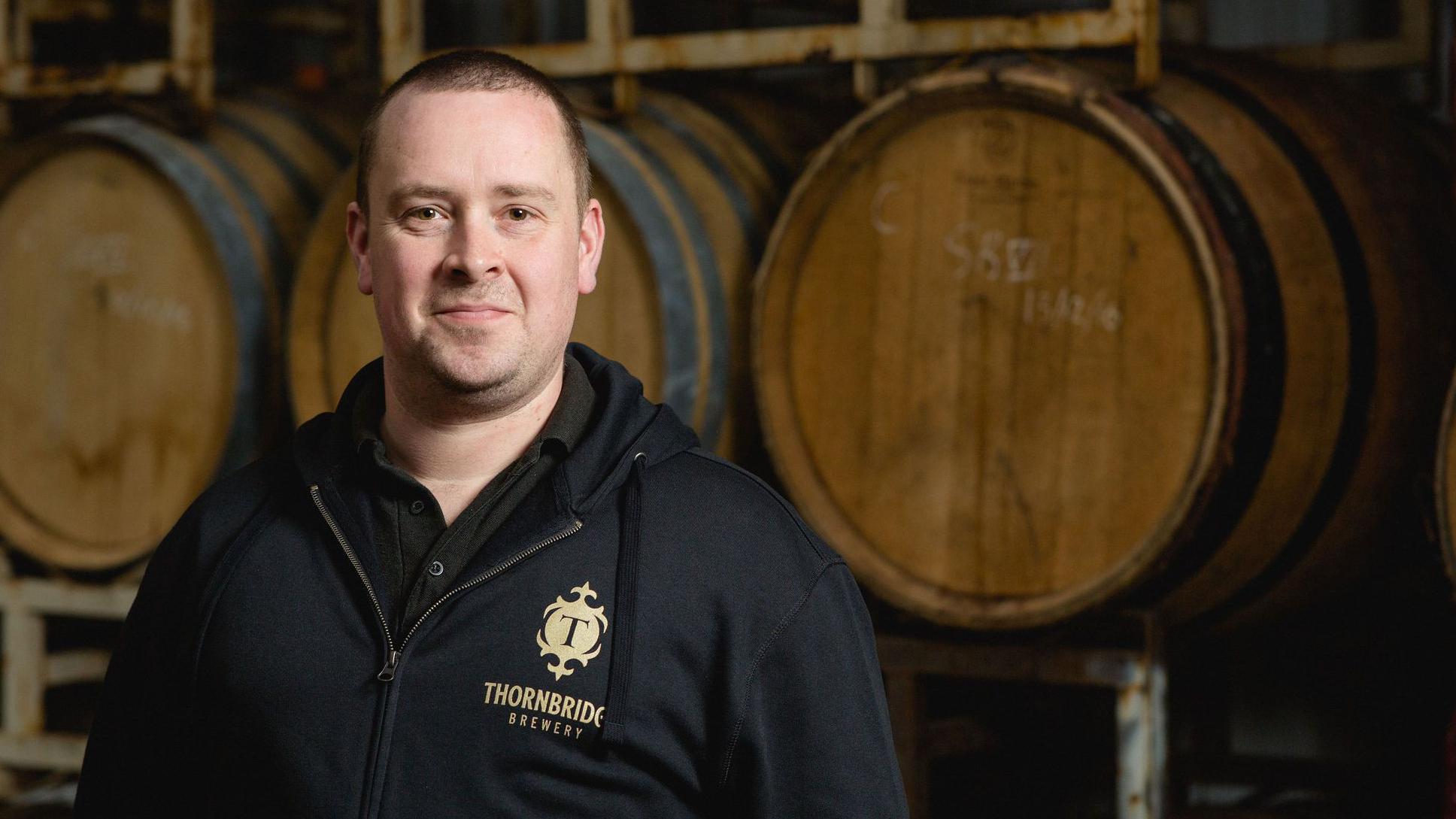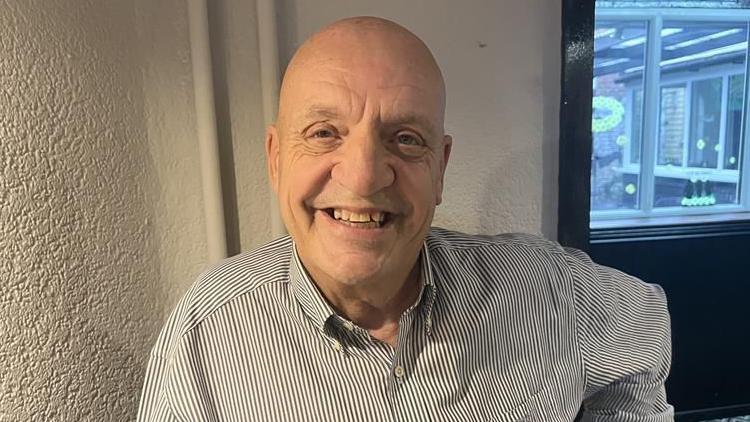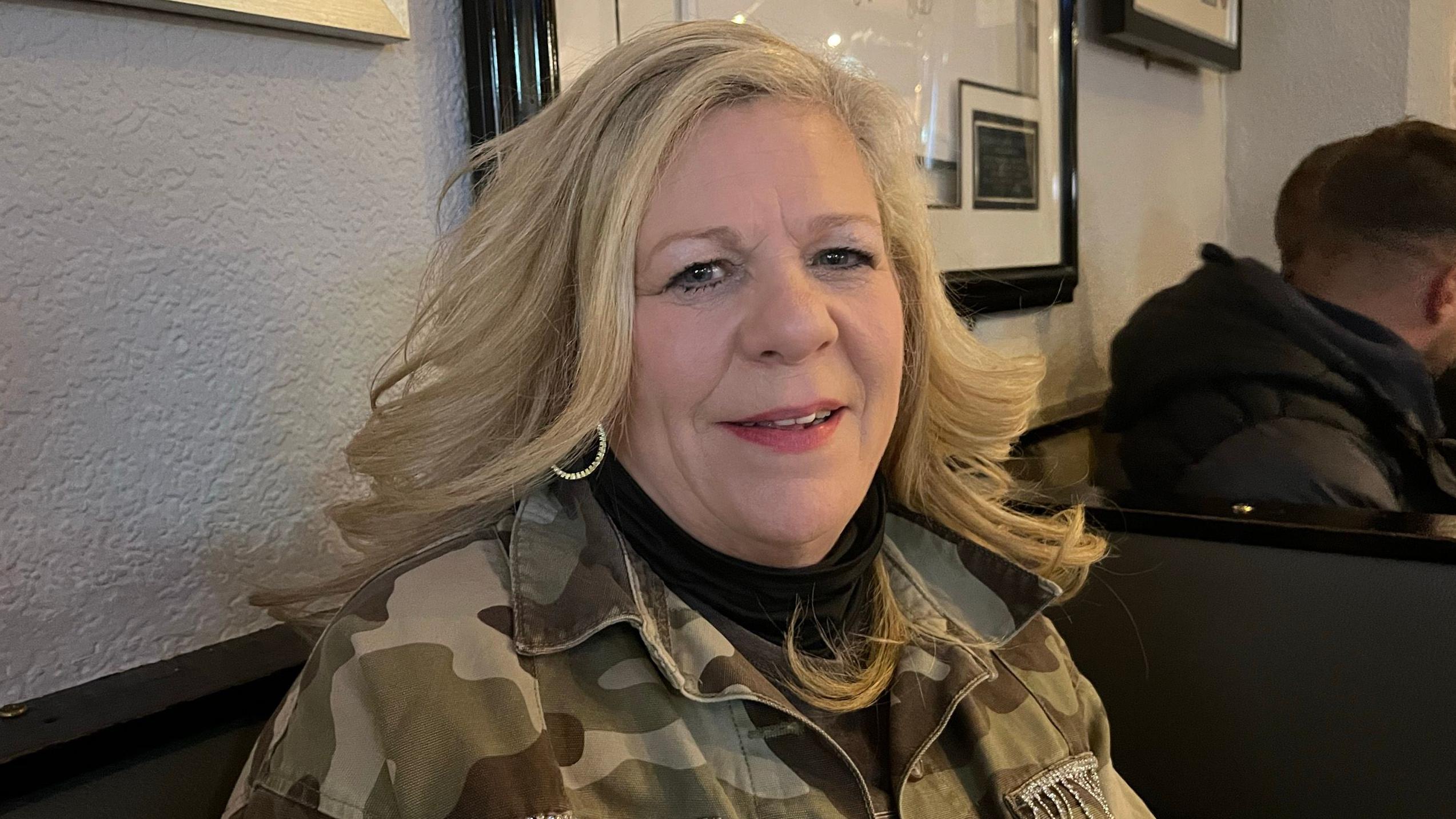
At first glance a non-alcoholic beer looks like a normal pint - the same colour, same glass and often has a similar taste.
However, the zero and low alcohol drink segment has experienced significant growth in demand throughout the UK during 2024. According to global drinks data firm IWSR, this market might reach a value of up to £800 million by 2028.
For brewers, producing alcohol-free items can be challenging and costlier compared to making beverages with higher alcohol content.
Therefore, considering the anticipated expansion of the no and low alcohol drinks sector in 2025, will these products justify their cost for both manufacturers and buyers?
Procedure and expenses associated with breweries
Upon hearing the phrase "alcohol-free," you might think that reduced alcohol content implies fewer ingredients, which would subsequently imply lower costs.
Ben Wood, a brewer at Thornbridge Brewery located in Bakewell, Derbyshire, stated that producing non-alcoholic beer isn’t as straightforward as one might think.
"It costs more to produce an alcohol-free beer because it involves more processes, more technology, more time and more ingredients," he said.
At Thornbridge, some non-alcoholic pints are produced exactly like their standard beer counterparts, utilizing identical grains, hops, yeast, and fermentation methods.
Dom Driscoll, who works as a brewer for the company in Derbyshire, mentioned that they employ reduced amounts of malted barley to achieve a lower alcohol content but increase the hop usage to enhance the flavor of their alcohol-free beer.
"We use the same equipment but we use it in a different way," explained Mr Driscoll.
"Over the last few years we have developed our own method to create our low alcohol beer, everybody does it in a different way."

Chris Butcher, who manages the Shiny Brewery in Derby, mentioned that he employs the identical components for crafting his non-alcoholic beverages, with these drinks requiring just as much production time as his standard beer varieties.
Mr. Butcher stated that they utilize water, malted barley, wheat, hops, and yeast throughout a three-week brewing process.
Larger breweries, like Heineken, often employ techniques such as vacuum distillation, which involves expensive equipment, for their production processes. palate-pleasing non-alcoholic beer.
This procedure decreases atmospheric pressure, which lowers alcohol's boiling point, enabling the beer to be warmed gently so as to preserve flavor while removing the alcohol through evaporation.
However, since alcohol has been eliminated, there remains a reduced level of flavor compounds.
Instead of removing the alcohol from the beer through high heat or rigorous filtering, we employ a particular strain of yeast that does not produce much alcohol—less than what you’d typically encounter in a mature banana,” explained Mr. Butcher.
"The skill is in controlling this fermentation process to get a true, close to beer fermented flavour without the alcohol."
The operating expenses for Shiny Brewery stay unchanged regardless of producing alcoholic or non-alcoholic beverages.
Mr. Butcher stated, "The sole savings from one option to another would be the cost of beer duties, which fall within the range of 30 to 40 pence per can."
The extra expense associated with handling non-alcoholic items will consume over fifty percent of this budget.
A pint of 4.5% Shiny Brewery lager has a wholesale price of £2.10, yielding a profit of 22p for the brewery, and its cost is 4p lower when accounting for ingredients.
An alcohol-free pint priced at 0.3% ABV sells for £1.90 wholesale, resulting in a greater profit margin of 30 pence due to reduced taxes and no duty charges.
According to the British Beer and Pub Association (BBPA), breweries earn approximately two pence per bottle of non-alcoholic beer, while pubs make around 12 pence per serving.
Mr. Butcher stated, "I hope individuals opt to consume beverages due to their pleasant flavors and because of the availability of choices, which is beneficial, rather than just picking those that lack alcohol purely based on cost."
"I think a good analogy would be decaffeinated coffee. Should it be automatically cheaper despite it having undergone an additional processing step?"
Sales and rising popularity
In 2023, more than 120m pints of no and low alcohol beers were drunk across the UK, with BBPA statistics estimating sales could rise by a further 20m by the end of 2024.
Data released ahead of the 2025 Dry January challenge found 15.5m people planned to not drink for the entire month.
Reasons behind this were participants' health, improved sleep quality, and saving money.
This study likewise highlights variations in perspectives and methods concerning alcohol among different age groups.
Alcohol Change UK reported that approximately 30% of individuals in the UK who consumed alcohol within the past six months expressed increased worry regarding potential long-term harm from their consumption.
These worries are most pronounced in the 25-34 age bracket (43%), whereas they are least prevalent among individuals who are 55 years old and older (18%).

Steve Kirk, who owns the Neptune pub in Derby, mentioned that purchasing alcohol-free items comes at the "same exact cost" as those with higher alcohol percentages.
He noted that having to sell it at the same price as conventional alcohol isn’t much of an encouragement for folks to opt for the non-alcoholic choice.
Should the purchase cost decrease, naturally, I'd lower the selling price. Currently, I sell roughly ten cans weekly; hence, unless the pricing becomes more favorable, additional inventory will not be acquired.
Amit Gill, who is 24 years old and hails from Derby, stated: "The cost would deter me if I’m really frank. If it were less expensive, I believe it would seem more appealing to folks."

Clare Wragg, 55 and from Derby, said she loves to drink a 0.0% stout and a 0.0% spiced rum when she is planning to drive when going out with friends.
"I can understand why it is priced the same as regular alcohol drinks because of the process to make it," said Ms Wragg.
"People have to make a profit and yes it would be nice if it was cheaper, but it tastes really good.
Why not pay the same price if what you get normally tastes good?
Follow digitalwealthpath2025Derby on Facebook , on X , or on Instagram Send your story concepts to eastmidsnews@digitalwealthpath2025.co.uk or via WhatsApp on 0808 100 2210.
- The hidden tricks for making more delicious non-alcoholic beer
- Research indicates that individuals opt for beverages with lower alcohol content.
0 Response to "Is the Premium Price for Alcohol-Free Drinks Worth It in 2025?"
Post a Comment